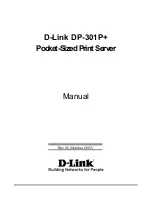
User Manual
UMN:CLI
V8102
705
As the needs of the case demand, you may also conditionally restrict the routing infor-
mation between the two networks using
route-map
command.
To permit or deny the specific information, open the
Route-map Configuration
mode using
the following command in
Global Configuration
mode.
Command
Mode
Description
route-map TAG
{
deny
|
permit
}
<0-65535>
Global
Creates the route map.
TAG: route map tag
0-65535: sequence number
no route-map TAG
[{
deny
|
per-
mit
} <0-65535>]
Deletes the route map.
12.4.6
Metrics for Redistributed Routes
The metrics of one routing protocol do not necessarily translate into the metrics of another.
For example, the RIP metric is a hop count and the OSPF metric is a combination of five
quantities. In such situations, an artificial metric is assigned to the redistributed route. Be-
cause of this unavoidable tampering with dynamic information, carelessly exchanging
routing information between different routing protocols can create routing loops, which
can seriously degrade network operation. To prevent this situation, we configure metrics
for this redistributed routes.
To set metrics for redistributed routes, use the following command.
Command
Mode
Description
default-metric
<1-16>
Router
Configures the equal metric of all routes transmitted by
routing protocol, enter the value.
1-16: default metric value
no default-metric
[<1-16>
Removes the equal metric of all routes transmitted by
routing protocol.
The metric of all protocol can be configured from 0 to 4294967295. It can be configured
from 1 to 16 for RIP.
12.4.7
Administrative Distance
Administrative distance is a measure of the trustworthiness of the source of the routing in-
formation.
In large scaled network, Administrative distance is the feature that routers use in order to
select the best path when there are two or more different routes to the same destination
from two different routing protocols. Administrative distance defines the reliability of a
routing protocol. Each routing protocol is prioritized in order of most to least reliable (be-
lievable) with the help of an administrative distance value.
Remember that administrative distance has only local significance, and is not advertised
i
















































